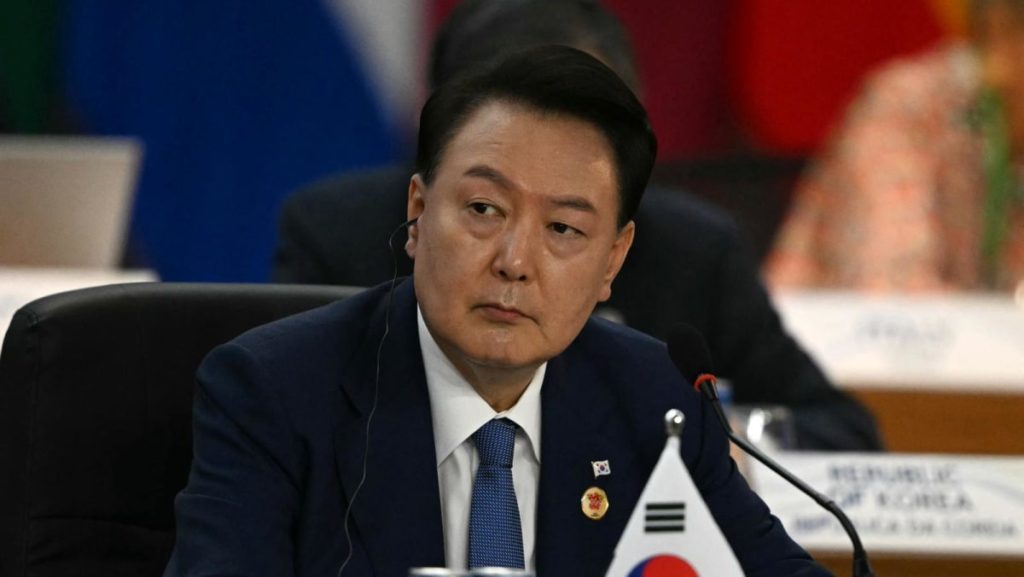In recent media coverage, South Korean President Yoon Suk-yeol has garnered attention for his fascination with Winston Churchill, the British prime minister known for his leadership during WWII. Yoon’s administration has focused on confronting North Korea’s nuclear threats while simultaneously strengthening alliances with the United States, a strategy that underscores his commitment to national security. His diplomatic endeavors were further highlighted during a memorable event last year at the White House, where he captivated audiences by performing Don McLean’s iconic song “American Pie.” US President Joe Biden’s humorous remark—”I had no damn idea you could sing”—added a light-hearted moment to an otherwise serious political landscape.
Despite Yoon’s initial popularity and efforts to navigate complex geopolitical dynamics, his administration has faced a significant shift following the opposition Democratic Party’s successful parliamentary elections earlier this year. The Democratic Party now holds a majority, effectively diminishing Yoon’s influence and prompting them to cut his budget. This substantial political change has led many to label him a “lame duck” president, which further complicates his efforts to enact policies and respond to South Korea’s pressing issues. Yoon’s attempts to reconcile South Korea’s relationship with Japan, a former colonial ruler, have also faced backlash domestically, revealing the deep-seated sensitivities surrounding historical grievances in the nation.
Yoon’s response to mounting political challenges has escalated recently, culminating in a televised address where he accused “anti-state elements” of undermining public welfare and happiness. He has since attempted to leverage these sentiments by suggesting that the imposition of martial law is necessary to navigate legislative deadlock and restore order. However, this declaration has sparked significant criticism, with analysts questioning the legitimacy of invoking martial law in a non-emergency situation. This move is seen as particularly concerning, given South Korea’s historical context, with martial law typically associated with dire circumstances, such as war or severe national security threats.
One prominent voice in the discourse around Yoon’s declaration is Gi-Wook Shin, a Stanford University professor who critiques the president’s justifications for martial law. Shin emphasizes that such extreme measures are typically reserved for significant emergencies and highlights the danger of encroachment upon democratic norms. He argues that this situation presents a critical moment for South Korea’s liberal democratic institutions, urging them to withstand challenges posed by authoritarian measures. The broader implications of Yoon’s actions resonate beyond South Korea, serving as a cautionary tale about the fragility of democratic processes when confronted with political adversity.
Moreover, the unfolding situation underscores the ongoing struggle between political factions in South Korea, which complicates governance and policy-making amid declining popular support for Yoon’s administration. The current political landscape reflects a struggle not just for power, but for the very essence of South Korea’s democratic ideals. Analysts warn that Yoon’s reliance on undemocratic approaches to achieve political objectives could undermine public trust in government institutions and political processes, potentially leading to civil unrest and further polarization within the society.
Ultimately, the intersection of Yoon’s leadership challenges, historical sensitivities, and the balance of power within South Korea’s political framework raises vital questions about the future of democracy in the country. As Yoon attempts to navigate these complex dynamics, the actions he chooses in the coming months will critically shape both his legacy and the integrity of South Korea’s democratic institutions. Amidst this turmoil, the international community watches closely, aware that the outcomes of these political struggles could have far-reaching consequences not only for South Korea but for the broader geopolitical landscape in East Asia.

